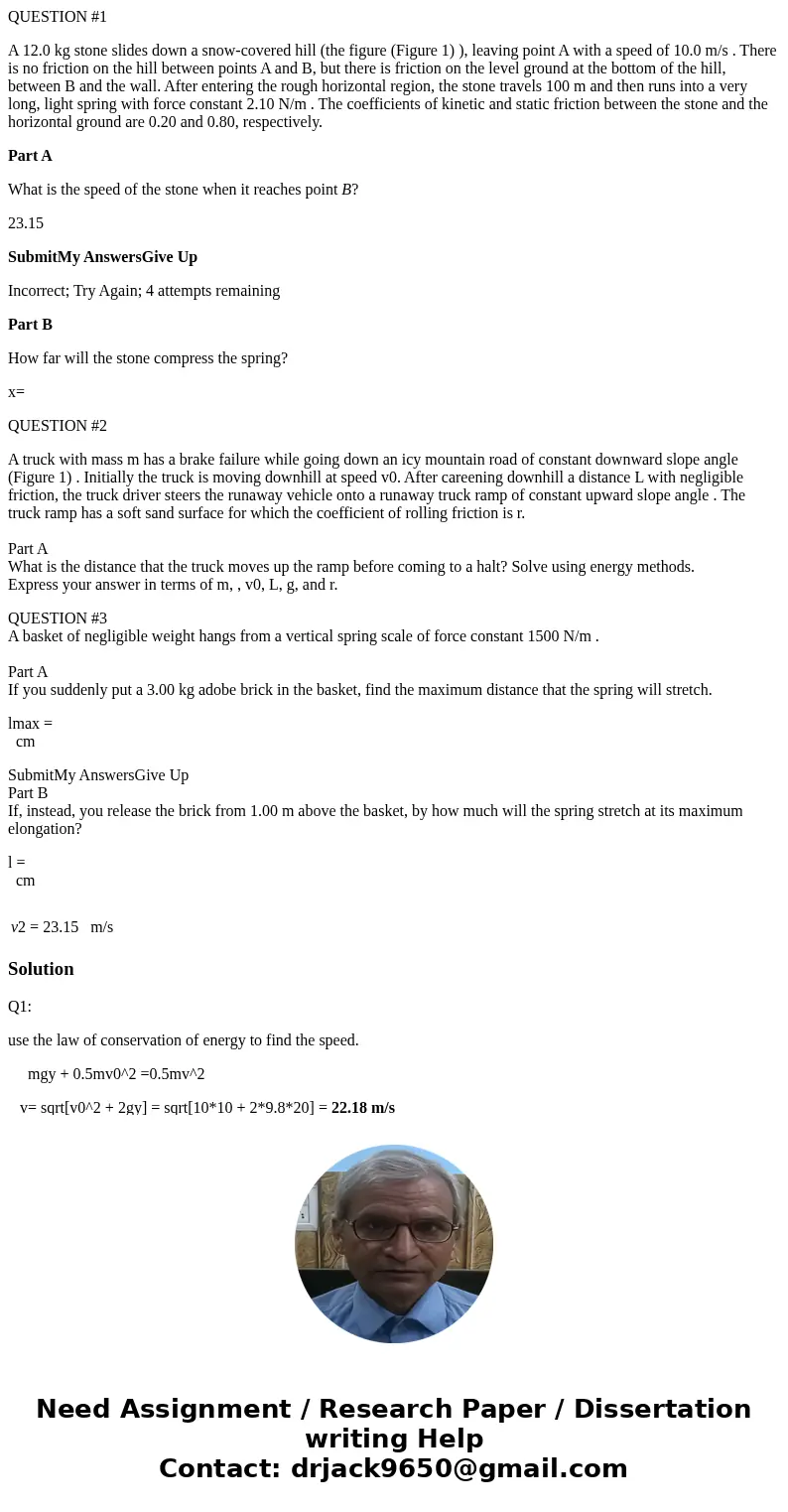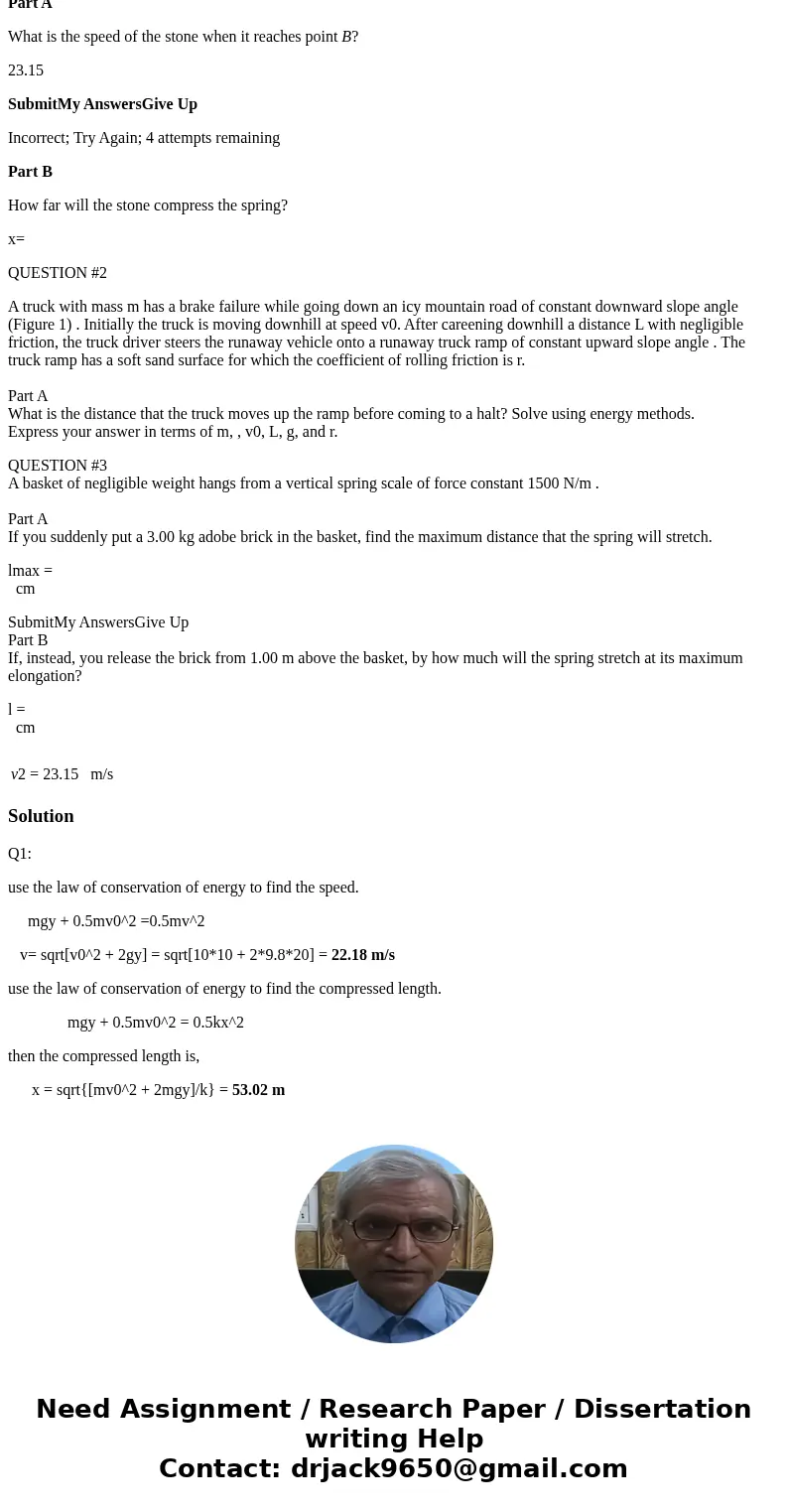QUESTION 1 A 120 kg stone slides down a snowcovered hill the
QUESTION #1
A 12.0 kg stone slides down a snow-covered hill (the figure (Figure 1) ), leaving point A with a speed of 10.0 m/s . There is no friction on the hill between points A and B, but there is friction on the level ground at the bottom of the hill, between B and the wall. After entering the rough horizontal region, the stone travels 100 m and then runs into a very long, light spring with force constant 2.10 N/m . The coefficients of kinetic and static friction between the stone and the horizontal ground are 0.20 and 0.80, respectively.
Part A
What is the speed of the stone when it reaches point B?
23.15
SubmitMy AnswersGive Up
Incorrect; Try Again; 4 attempts remaining
Part B
How far will the stone compress the spring?
x=
QUESTION #2
A truck with mass m has a brake failure while going down an icy mountain road of constant downward slope angle (Figure 1) . Initially the truck is moving downhill at speed v0. After careening downhill a distance L with negligible friction, the truck driver steers the runaway vehicle onto a runaway truck ramp of constant upward slope angle . The truck ramp has a soft sand surface for which the coefficient of rolling friction is r.
Part A
What is the distance that the truck moves up the ramp before coming to a halt? Solve using energy methods.
Express your answer in terms of m, , v0, L, g, and r.
QUESTION #3
A basket of negligible weight hangs from a vertical spring scale of force constant 1500 N/m .
Part A
If you suddenly put a 3.00 kg adobe brick in the basket, find the maximum distance that the spring will stretch.
lmax =
cm
SubmitMy AnswersGive Up
Part B
If, instead, you release the brick from 1.00 m above the basket, by how much will the spring stretch at its maximum elongation?
l =
cm
| | ||||
| v2 = | 23.15 | m/s |
Solution
Q1:
use the law of conservation of energy to find the speed.
mgy + 0.5mv0^2 =0.5mv^2
v= sqrt[v0^2 + 2gy] = sqrt[10*10 + 2*9.8*20] = 22.18 m/s
use the law of conservation of energy to find the compressed length.
mgy + 0.5mv0^2 = 0.5kx^2
then the compressed length is,
x = sqrt{[mv0^2 + 2mgy]/k} = 53.02 m


 Homework Sourse
Homework Sourse